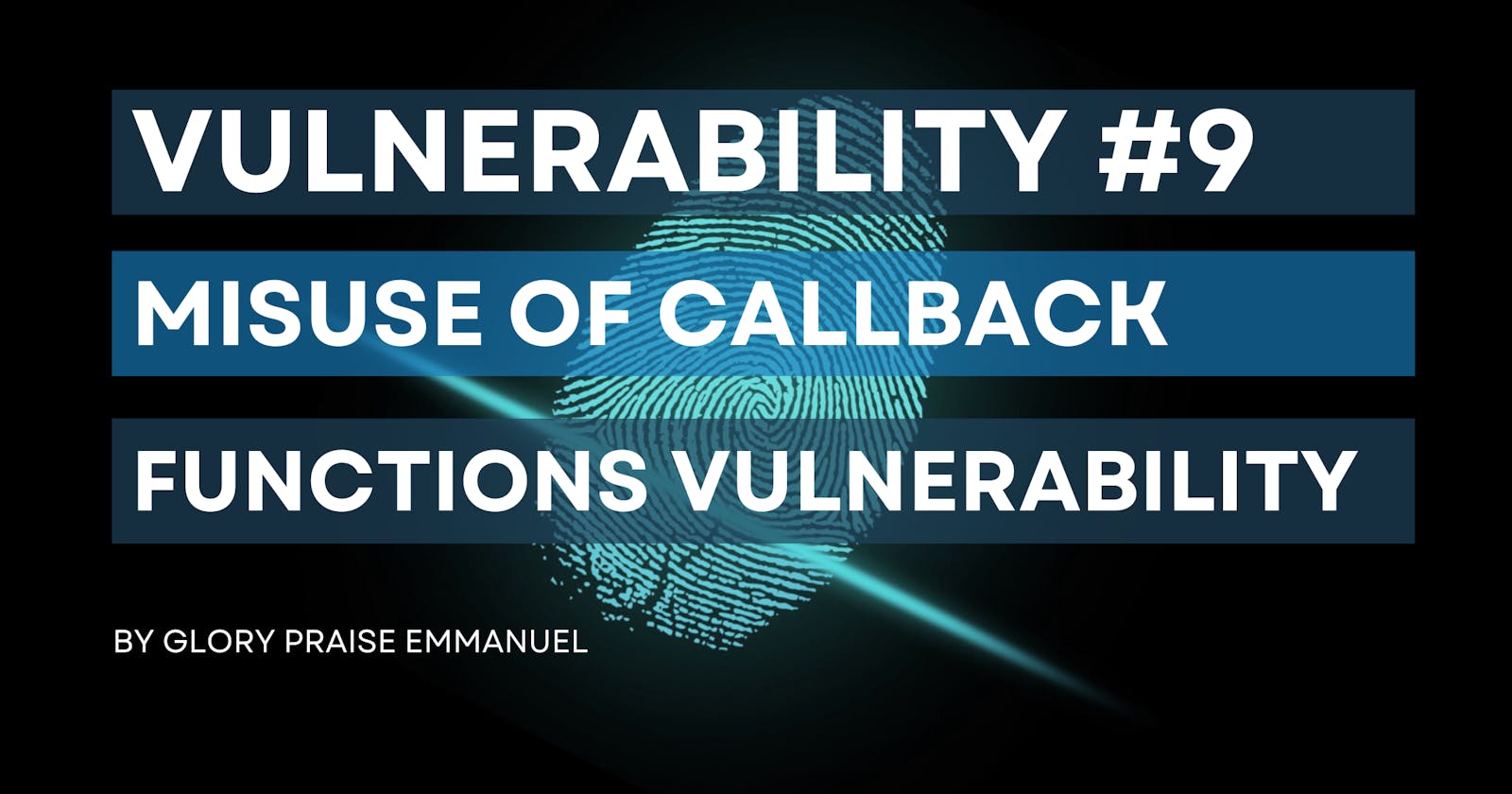Callback functions play a vital role in Solidity, allowing functions to communicate and exchange data within a smart contract. However, their misuse can lead to unforeseen consequences and potential security vulnerabilities. In this article, we explore the concept of callback functions, their significance in asynchronous programming, and the risks associated with their insecure implementation. We also provide practical examples and best practices to mitigate these vulnerabilities, ensuring the security of your smart contracts.
What is a callback function?
Callback functions serve as functions passed as arguments to other functions, facilitating the flow of data and control between functions. In Solidity, callback functions are commonly employed to interact with external systems, such as the Ethereum blockchain. They are particularly useful in scenarios where one function needs to wait for another function to complete its task before proceeding.
Let's look at how a callback function is used:
pragma solidity ^0.8.0;
contract CallbackExample {
function callback(uint result) public {
// Do something with the result.
...
}
function start() public {
// Call the asynchronous function.
asyncFunction(10, callback);
}
function asyncFunction(uint value, function(uint) callback) public {
// Do some asynchronous work.
// ...
// Call the callback function when the work is finished.
callback(value);
}
}
In this example, the callback() function is a callback function. It is passed as an argument to the asyncFunction() function. The asyncFunction() function then calls the callback() function when it is finished with its work. The callback() function can then do something with the result of the asyncFunction() function.
What then is the Misuse of Callback Functions Vulnerability?
Unfortunately, the misuse of callback functions can introduce security vulnerabilities in smart contracts. For instance, if sensitive data, such as private keys, is passed to a callback function without adequate security measures, attackers could exploit this vulnerability to gain unauthorized access and control over user accounts.
A practical example of callback function misuse is transferring funds without proper validation. Imagine a contract that allows users to register a callback function to execute when the contract receives Ether. If the callback function is not implemented securely, it could inadvertently transfer the received Ether to an unauthorized address or execute malicious code, putting the contract and its users at risk.
In the following code example, a contract is created that allows a user to register a callback function to be executed when the contract receives ether.
pragma solidity ^0.8.0;
contract CallbackVulnerability {
address payable owner;
function() external payable callback;
constructor() public {
owner = msg.sender;
}
function registerCallback(function() external payable _callback) public {
require(msg.sender == owner);
callback = _callback;
}
function() external payable {
require(msg.value > 0);
callback();
}
}
In this example, the contract allows the owner to register a callback function that will be executed when the contract receives ether. However, if the callback function is maliciously or accidentally implemented, it could transfer the ether to an unauthorized address or execute malicious code.
Mitigating Callback Function Vulnerabilities
To mitigate the risks associated with callback function vulnerabilities, several best practices can be employed. One approach is to maintain a whitelist of authorized callback functions, allowing only pre-approved addresses to register and execute callback functions. This ensures that only trusted sources can interact with the contract's callback mechanism, reducing the likelihood of malicious or accidental execution.
Another effective measure is to validate the logic of the callback function before executing it. By analyzing the bytecode or executing the callback function within a sandboxed environment, you can ascertain its safety and integrity, preventing potential exploits.
Refactoring the example above, making it more secure, we can do this instead:
pragma solidity ^0.8.0;
contract CallbackSafe {
address payable owner;
mapping(address => bool) public whitelist;
function() external payable callback;
constructor() public {
owner = msg.sender;
}
function addToWhitelist(address _address) public {
require(msg.sender == owner);
whitelist[_address] = true;
}
function registerCallback(function() external payable _callback) public {
require(whitelist[msg.sender] == true);
callback = _callback;
}
function() external payable {
require(msg.value > 0);
callback();
}
}
In this example, the CallbackSafe contract uses a whitelist of authorized callback functions, only the addresses that are added to the whitelist by the owner can register a callback function. This ensures that only authorized addresses can register a callback function and reduces the risk of a malicious or accidental callback function being executed.
It's important to keep in mind that a callback function can be malicious, so it's recommended to validate the callback function's logic before executing it.
Here are a few other things that can be done to avoid the misuse of callback functions vulnerability:
Only call callback functions with trusted data: Do not call callback functions with sensitive data, such as the user's private key.
Secure callback functions properly: Make sure that callback functions are properly secured, so that attackers cannot steal sensitive data.
Conclusion
The misuse of callback functions vulnerability is a serious security vulnerability that can be exploited by attackers. By adhering to the best practices discussed in this article, you can safeguard your contracts against potential exploits and maintain the trust of your users. Implementing authorized whitelists and performing thorough validation of callback functions will bolster the security of your smart contracts, ensuring a robust and resilient system.
Thanks for reading.
Till I come your way again,
Adios!

